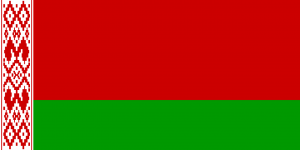Difference between revisions of "Language/Belarusian/Grammar/How-to-Use-Be"
m (Quick edit) |
m (Quick edit) |
||
| Line 76: | Line 76: | ||
|description=Learn how to use the verb "be" in Belarusian with this beginner-friendly guide. Practice forming simple sentences, negations, and questions. | |description=Learn how to use the verb "be" in Belarusian with this beginner-friendly guide. Practice forming simple sentences, negations, and questions. | ||
}} | }} | ||
==Related Lessons== | |||
* [[Language/Belarusian/Grammar/Negation|Negation]] | |||
* [[Language/Belarusian/Grammar/Give-your-Opinion|Give your Opinion]] | |||
* [[Language/Belarusian/Grammar/Conditional-Mood|Conditional Mood]] | |||
* [[Language/Belarusian/Grammar/Prepositions|Prepositions]] | |||
* [[Language/Belarusian/Grammar/Personal-Pronouns|Personal Pronouns]] | |||
* [[Language/Belarusian/Grammar/How-to-Use-Have|How to Use Have]] | |||
* [[Language/Belarusian/Grammar/Pronouns|Pronouns]] | |||
* [[Language/Belarusian/Grammar/Future-Tense|Future Tense]] | |||
* [[Language/Belarusian/Grammar/Adjectives|Adjectives]] | |||
{{Belarusian-Page-Bottom}} | {{Belarusian-Page-Bottom}} | ||
Revision as of 11:48, 6 March 2023
Hi Belarusian learners! 😊
In this lesson, we will learn how to use the verb "be" in the Belarusian language. Using "be" is crucial to forming simple sentences and expressing states of being, so let's get started!
Forms of "Be"
In Belarusian, the verb "be" (быць) is irregular in its present tense forms. Here are the present tense forms:
| Belarusian | Pronunciation | English |
|---|---|---|
| я ёсць | ja josc' | I am |
| ты ёсць | ty josc' | You are (singular) |
| ён, яна, яно ёсць | jon, jana, jano josc' | He, she, it is |
| мы ёсць | my josc' | We are |
| вы ёсць | vy josc' | You are (plural) |
| яны ёсць | jany josc' | They are |
Here are some examples:
- Я ёсць студэнт. (Ja josc' studjent.) - I am a student.
- Ты ёсць гучнік. (Ty josc' hucnik.) - You are a speaker.
- Ён ёсць высокі. (Jon josc' vysoki.) - He is tall.
Don't worry if these forms seem overwhelming at first. Like with any new concept, practice makes perfect!
Negation
To create negative sentences in Belarusian, simply add "не" before the verb "be". Here are some examples:
- Я не ёсць студэнт. (Ja ne josc' studjent.) - I am not a student.
- Ты не ёсць гучнік. (Ty ne josc' hucnik.) - You are not a speaker.
- Ён не ёсць высокі. (Jon ne josc' vysoki.) - He is not tall.
It's important to note that the word order in negative sentences remains the same as in positive ones: subject-verb-object. The only difference is the addition of "не".
Question Form
To form a question in Belarusian, simply change the intonation of the sentence. This means that the word order remains the same as in positive sentences, but the pitch of the speaker's voice should rise at the end of the sentence. Here are some examples:
- Я ёсць студэнт? (Ja josc' studjent?) - Am I a student?
- Ты ёсць гучнік? (Ty josc' hucnik?) - Are you a speaker?
- Ён ёсць высокі? (Jon josc' vysoki?) - Is he tall?
Dialogue
Person 1: Я ёсць Беларус. (Ja josc' Bielarus.) - I am Belarusian. Person 2: І я. (I ja.) - Me too.
Person 1: Ты ёсць з Мінска? (Ty josc' z Minska?) - Are you from Minsk? Person 2: Так, я з Мінска. (Tak, ja z Minska.) - Yes, I am from Minsk.
Person 1: Ён высокі? (Jon vysoki?) - Is he tall? Person 2: Ня, ён не высокі. (Nia, jon ne vysoki.) - No, he is not tall.
Conclusion
Congratulations! You now know how to use the verb "be" in Belarusian. Practice forming simple sentences and negations, and try asking questions using the correct intonation. To improve your Belarusian grammar, you can also use the Polyglot Club website. Find native speakers and ask them any questions! Don't forget to check out more grammar lessons on the Grammar page. Да вызначэння! (Da vyjaznachennia!) - Good luck!
➡ If you have any questions, please ask them in the comments section below.
➡ Feel free to edit this wiki page if you think it can be improved. 😎
Related Lessons
- Negation
- Give your Opinion
- Conditional Mood
- Prepositions
- Personal Pronouns
- How to Use Have
- Pronouns
- Future Tense
- Adjectives
